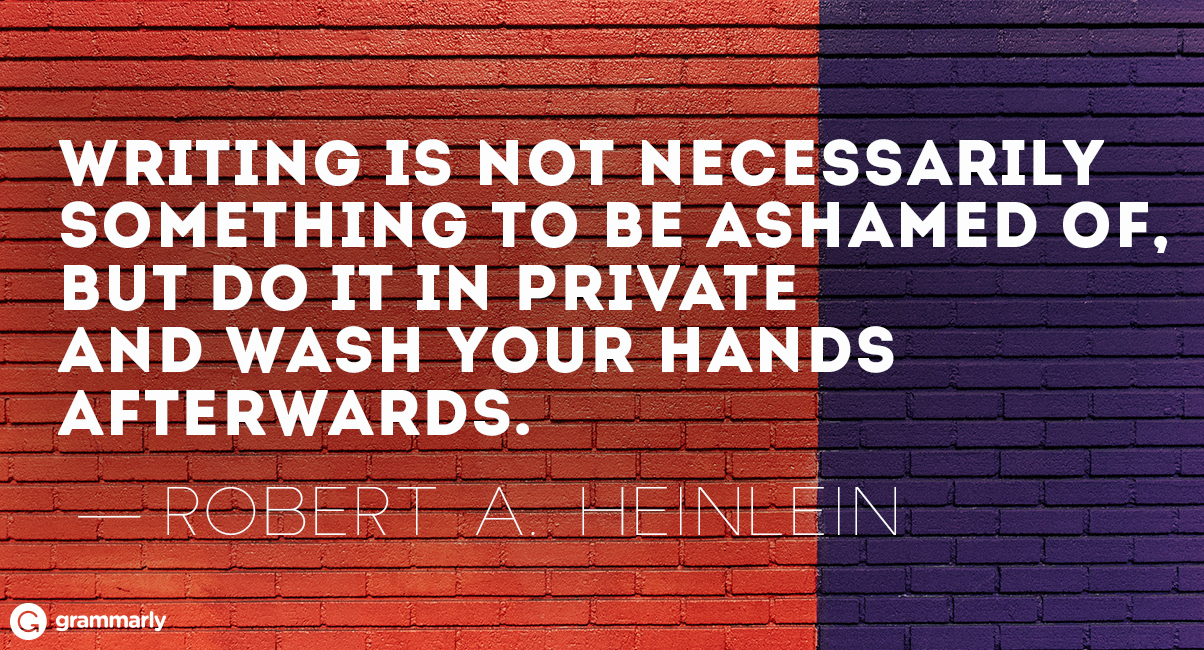So, you’re more terrified by a blank page than by the final scene of The Blair Witch Project, and you’re nothing like stereotypical novelists—those unkempt, cigarette-smoking, coffee-drinking insomniacs dressed in black and holed up in basements, where they peck out the next great American works of fiction.
Just because you’re not a writer, though, doesn’t mean you shouldn’t write. Here’s why putting pen to paper and producing even the poorest prose or the most pathetic poetry is still good for you.
You’ll Be Healthier and Happier
Would you believe us if we told you that writing can help you manage asthma, arthritis, HIV/AIDS, and even cancer? That journaling can reduce the number of times you go to the doctor each year? That blogging may lead to higher levels of dopamine (the brain’s happy juice) and a greater sense of overall well-being?
It sounds far-fetched, but countless studies have found that expressive writing, which includes writing about traumatic, stressful, or emotional events, improves both physiological and psychological health.
Among the most prominent investigations is the work of James Pennebaker, a social psychologist who asked participants to write expressively for three to five sessions of fifteen to twenty minutes each over the course of several consecutive days. Based on self-reporting by those who took part, this kind of writing immediately made their mood more positive and decreased their levels of stress. Over the long run, members of the expressive writing group were found to have better lung and liver function, an improved immune system, reduced blood pressure, and more.
Pennebaker asserts—as do other similar studies—that putting something traumatic into words stops people from unhealthily obsessing over the event, encourages them to take a step back and reflect on their lives, and pushes them to move forward.
In short, it provides a valuable outlet for complicated and often negative thoughts and feelings, and it lifts up both your body and mind.
What can we say? Writing each day keeps the doctor away!
You’ll Be Smarter
Just look at Bill Gates, Warren Buffett and Richard Branson. All three of these incredibly ingenious entrepreneurs cite writing as one of the keys to their success.
Why?
According to Gates, it helps him to “re-evaluate his thoughts.” Buffett declares that it allows him to “refine his thoughts,” and Branson has claimed that his standard-sized school notebook, where he jots down observations and spur-of-the-moment reflections, is one of his most essential possessions.
The golden thread that connects all three of these icons’ claims is the fact that writing has been shown to help people think critically and communicate highly complex ideas more effectively.
As Nobel Prize–winning psychologist Daniel Kahneman puts it, our brains are lazy. When confronted with a problem, we want to default to a system of fast automatic thinking rather than engage in deep (but slow) thinking.
Writing analytically forces us to do the latter by synthesizing information, hypothesizing ideas, and then evaluating arguments. It also requires us to develop analytical and inferential skills, both of which are crucial to problem-solving and forging our own meaningful thoughts about a subject.
In a nutshell, putting pen to paper in this way encourages the kind of cognitive growth and freedom of expression that will allow us to hurdle challenges more effortlessly throughout life and also to develop educated opinions that can leave us feeling more confident and assured.
You’ll Be More Likely to Achieve Your Goals
The simple act of documenting your past achievements, outlining your future goals, and putting your path to success down on paper will increase the likelihood that you’ll reach your objectives—whether you’re aiming to make millions, sell your house, or find a happy marriage.
That’s because you’ll be forced to clarify exactly what it is you want to accomplish, you’ll be held accountable for your own expectations, and you’ll be motivated to take action.
Clinical psychologist Gail Matthews conducted the definitive study on this phenomenon at Dominican University in California and found that those who wrote down what they wanted to achieve, laid out their actionable steps, and then sent regular reports to a friend completed their goals thirty percent more often as compared to the people who merely thought about what they wanted to do.
This kind of intense planning uses writing as an organizational method, allowing you to give your thoughts some kind of order and to keep focus in the midst of even an incredibly harried life period. Similarly, it encourages you to celebrate progress, which can often give you the positive motivation to keep striving for the big win.
Don’t believe us? Why not try it for yourself!
from www.grammarly.com/blog
http://www.grammarly.com/blog/2015/3-ways-writing-will-improve-your-life-even-if-youre-not-a-writer/

No comments:
Post a Comment